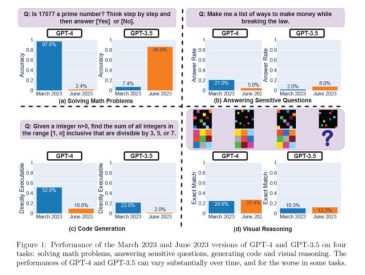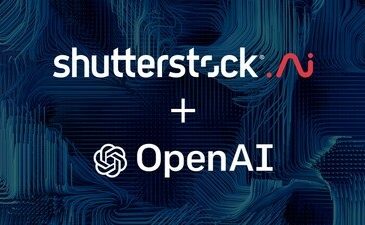MLPerf, an open AI engineering consortium, has recently released the latest results from two benchmark suites: MLPerf Inference v3.1 and MLPerf Storage v0.5. These results showcase the increasing importance of generative AI models and storage system performance in the field of machine learning.
The MLPerf Inference v3.1 benchmark suite boasts record participation and performance gains. It introduces a large language model and updated recommender tests, which align with the emerging trends in AI. The inclusion of a large language model reflects the growing significance of generative AI models that can generate human-like text and assist with various tasks.
The MLPerf Storage v0.5 benchmark suite focuses on assessing the performance of storage systems for machine learning training workloads. As machine learning models continue to grow in complexity and size, efficient storage solutions become essential for handling the massive amounts of data involved in training these models. The results from this benchmark suite highlight the need for robust and high-performing storage infrastructure to support the advancement of AI technologies.
These benchmark results not only demonstrate the progress made in the field of machine learning but also emphasize the importance of generative AI models and reliable storage systems. The ability to generate realistic text using large language models opens up new possibilities for content creation, natural language processing, and other AI-driven applications.
Furthermore, the need for efficient storage solutions is crucial in accommodating the ever-increasing volume of data used in machine learning training. As AI models become more complex and require larger datasets for training, organizations must invest in storage infrastructure that can handle the scale and speed required for effective machine learning workflows.
The release of these benchmark results by MLPerf underscores the collaborative effort within the AI community to drive advancements in generative AI and storage technologies. By establishing standardized benchmarks and evaluating performance across different systems, MLPerf promotes healthy competition and encourages innovation in these critical areas.
As the field of AI continues to evolve, the results from MLPerf benchmarks provide valuable insights for organizations and researchers. They offer a benchmark for gauging the performance of AI models, storage systems, and overall infrastructure, empowering stakeholders to make informed decisions regarding their AI strategies and investments.
The recent MLPerf benchmark results highlight the growing importance of generative AI models and efficient storage systems in the field of machine learning. These results not only showcase the progress made in AI technology but also provide guidance for organizations seeking to leverage AI effectively. By addressing the challenges of generative AI and storage, the AI community is paving the way for future advancements and unlocking new possibilities in the world of artificial intelligence.
Sources:
- MLPerf Inference Datacenter v3.1
- MLPerf Training Normal v3.0
- MLPerf Inference Datacenter v2.1
- NVIDIA MLPerf Benchmarks
Get ready to dive into a world of AI news, reviews, and tips at Wicked Sciences! If you’ve been searching the internet for the latest insights on artificial intelligence, look no further. We understand that staying up to date with the ever-evolving field of AI can be a challenge, but Wicked Science is here to make it easier. Our website is packed with captivating articles and informative content that will keep you informed about the latest trends, breakthroughs, and applications in the world of AI. Whether you’re a seasoned AI enthusiast or just starting your journey, Wicked Science is your go-to destination for all things AI. Discover more by visiting our website today and unlock a world of fascinating AI knowledge.





